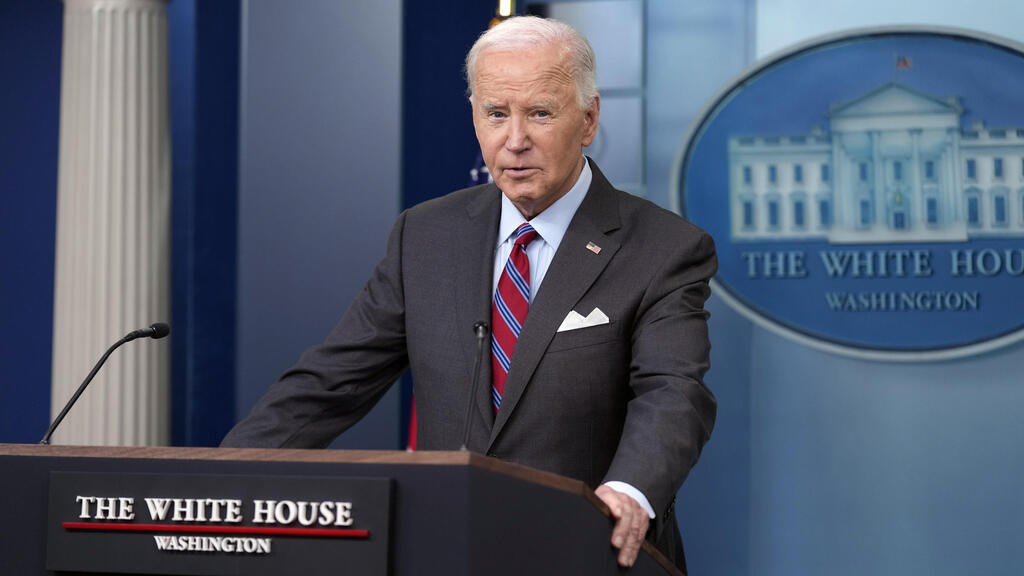Biden's press briefing
(Video: via X)
American news outlet Bloomberg published an extensive report on Friday detailing Washington’s frustration over the "lack of influence" the U.S. has on Israel regarding its military actions, especially in light of Israel's ground entry into southern Lebanon.
Two sources familiar with U.S. policy said Israel is aware it has a "window of opportunity" to take action before the presidential election on November 5.
3 View gallery


U.S. President Joe Biden, Prime Minister Benjamin Netanyahu, Iran's Supreme Leader Ali Khamenei
(Photo: SAUL LOEB / AFP, Alex Kolomoisky)
Amid a potential Israeli attack on Iran in response to its ballistic missile strike against the country, crude oil prices surged on Thursday after U.S. President Joe Biden said Israel was considering striking Iran's oil facilities and advised against it. Higher oil prices could threaten the Biden administration's hopes of keeping fuel costs low for Democratic voters.
"If I were in their shoes, I’d be thinking about other alternatives than striking oil fields," Biden told reporters, adding that Israel hasn't yet decided on its response. A senior U.S. State Department official told CNN on Friday that Israel has not given the Biden administration any guarantees that it won't target Iran's nuclear facilities in response to the Iranian attack.
A source familiar with the administration's policy was quoted by Bloomberg expressing concern in Washington from Israel "going too far" in in retaliation against Tehran. Senior IDF officials clarified on Saturday the response to the ballistic missile strike will be "significant.”
The report also addressed Israel's ground entry into southern Lebanon, suggesting that Israel's previous maneuvers in the country developed into "deadly quagmires," and that the last U.S.-led effort to change the Middle East — the 2003 invasion of Iraq — only made the region less stable.
"We should all understand that this war will get wider, that it may involve the United States in ways we wish it would not, that it may change oil prices for America as we head toward the winter," said Wendy Sherman, a veteran diplomat who left the U.S. State Department after serving as deputy secretary of state in 2023.
Biden's special envoy to the Middle East Amos Hochstein, who has tried for months to prevent war in the north, said on Friday the U.S. did not give a "green light" for an Israeli ground operation in Lebanon.
"Ultimately, only a diplomatic resolution will allow residents to return home. We continue to work [with the] governments of Israel & Lebanon on [the] best path to restore calm,” he said.
Biden had little choice but to try to exert whatever influence he had left on Prime Minister Benjamin Netanyahu. A senior Western diplomat said some allies are considering the prospect of a "Samson option" — a scenario where a Kamala Harris victory would allow Biden to cave under pressure and cut off arms supplies to Israel to force a cease-fire.
But with U.S. polls showing the race between Harris and Republican candidate Donald Trump is close, the option seems irrelevant for now, meaning the White House will likely continue its effort to temper Israel's expanding military actions seemingly.
Get the Ynetnews app on your smartphone:






